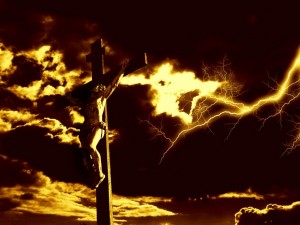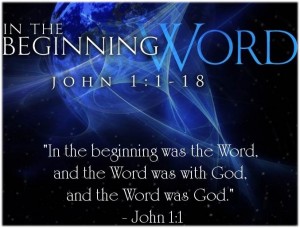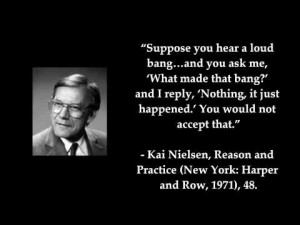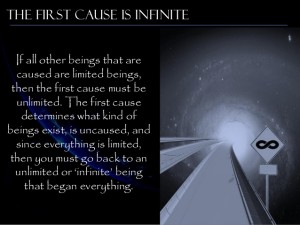- ABOUT
- ARGUMENTS – EXISTENCE OF GOD
- The Argument from Contingency
- Cosmological Argument
- Moral Argument
- Ontological Argument
- Teleological/Design/Fine-tuning Argument
- Pascal’s Wager
- The Argument from Religious Experience
- The Argument from Miracles
- The Argument from Consciousness
- The Argument from Truth
- The Argument from Desire
- The Argument from Aesthetic Experience
- HISTORICITY – RESURRECTION
- CHRISTIANITY & ISLAM
- APOLOGETICS
 In the introduction of his milestone book/study, David Garrison reveals a movement of God’s Spirit within the House of Islam, a movement of a magnitude that has not been seen over the last 1400 years.
In the introduction of his milestone book/study, David Garrison reveals a movement of God’s Spirit within the House of Islam, a movement of a magnitude that has not been seen over the last 1400 years.
“A wind is blowing through the House of Islam. The House of Islam, Dar al-Islam in Arabic, is the name Muslims give to an invisible religious empire that stretches from West Africa to the Indonesian archipelago, encompassing 49 nations and 1.6 billion Muslims. Dwarfing the size of any previous earthly kingdom, Islam directs the spiritual affairs of nearly a quarter of the world’s population. But something is happening today that is challenging the hold that Islam exercises over its adherents. Muslim movements to Jesus Christ are taking place in numbers we’ve never before seen.”
What does this mean to us as Christians who have been called to be ambassador’s for Christ? Those who Christ commissioned before His ascension and gave the promise of empowerment that we would “receive power when the Holy Spirit has come upon you, and you will be my witnesses in Jerusalem and in all Judea and Samaria, and to the end of the earth.” (Acts 1:8 ESV) When one considers the language/ethnic groups in which Jesus’ disciples spoke after they were endowed from the “power from on high,” Jesus’ commission is clear-we are to be ambassador’s of the Gospel to ALL people everywhere. “And they were amazed and astonished, saying, “Are not all these who are speaking Galileans? And how is it that we hear, each of us in his own native language? Parthians and Medes and Elamites and residents of Mesopotamia, Judea and Cappadocia, Pontus and Asia, Phrygia and Pamphylia, Egypt and the parts of Libya belonging to Cyrene, and visitors from Rome, both Jews and proselytes, Cretans and Arabians—we hear them telling in our own tongues the mighty works of God.” (Acts 2:7-11 ESV)
At the end of his book, David Garrison puts forth the following challenge and methodology for effective Muslim outreach:
“In the course of this book we have learned a lot about Muslims and about how God is at work in the House of Islam. This has been an insightful journey, but if we finish this journey with nothing more than education and observations, we have fallen short of the discipleship implications of this information. Christ’s invitation, indeed Christ’s mandate, is for us to be a part of his great work. Christ calls us to raise our spiritual sails and ride the wind of his Spirit that is blowing throughout the world.
How do we do this? Here are five practical steps we can take right now that will align us with God’s redemptive activity among Muslims.
1) Pray for Muslims-Prayer changes things, and every Christian can pray for Muslims…When we pray for Muslims, we begin to see them as God sees them. If you lack a love for Muslims, pray for them and see how your heart changes.
2) Support outreach and ministries to Muslims-You’ve seen the importance of missionary and local Christian witness, Bible translation efforts, gospel videos, satellite television, radio broadcasts, compassion ministries, religious freedom advocacy, ministry to refugees, and other efforts. These ministries are costly. Muslims will not and should not be expected to pay for their own evangelization. That job is up to Christians, Christians from both a Muslim background and from a Christian background. God has placed more wealth into the hands of Christians today then at any time in history.
3) Go to Muslims-Movements to Christ do not take place spontaneously. They occur when someone sacrificially responds to God’s call and brings to them the good news…The Bible makes it clear, “How, then, can they call on the one they have not believed in? And how can they believe in the one of whom they have not heard? And how can they hear without someone preaching to them? And how can they preach unless thy are sent? As it is written, ‘How beautiful are the fee to those who bring good news!'” (Rom. 10:14-15)
4) Minister to Muslims in your own community-A rich definition of ministry has grown out of the many Muslim movements to Christ around the world; Christians participating in these movements define ministry as “answering the prayers of lost people.” this concept of ministry requires us to get to know Muslims, to listen to them, to become their friends.
5) Share the Gospel with Muslims-Prayer and ministry are the perfect preludes to gospel witness. When you’ve spent time praying for someone and then demonstrated Christ’s love to them through ministry, it is natural to “give the reason for the hope that you have.” “But” as the Apostle Peter continues, we must always “do this with gentleness and respect.” (1 Peter 3:15)
(end of excerpts from “A Wind in the House of Islam.”)
For further resources regarding ministry to Muslims, see the section on this site, Evangelism to Muslims, here
The Book that Changed the World
THE RELIABILITY AND RELEVANCE OF THE BIBLE
Dr. Daniel B. Wallace will present powerful evidence for those watching live or live stream concerning the reliability of the Bible in the main lecture, “How Badly has the Bible Been Corrupted?” February 5, 7:00-9:30pm EST at Elliott Hall of Music, Purdue University.
Most people are simply unaware of the fact that the historical reliability of the Bible is incomparably greater than any other ancient texts. To deny this is to require skepticism about the reliability of all ancient literature. Indeed, the level of reliability of the Bible is so high that the Bible we hold in our hands today is essentially the same as what was available in the first century. Come hear and see the astounding evidence and learn about the relevance and historical reliability of the Bible. There will also be a manuscript exhibit such that one can actually see and literally touch the books that changed the world. The Bible has had more impact on western civilization than virtually anything else. Hospitals were named after religious sects, not after secularism. The university likewise owes its existence to Christian thought derived from the Bible.
For more information on specific topics and events see http://www.symposiachristi.com/
“More or less by accident, the worlds of broadcasting and publishing have created one of the literary marvels of Christianity. It’s a book called Mere Christianity, by C. S. Lewis, the scholar who became famous by writing the seven fantasy novels that make up the Chronicles of Narnia. Lewis died in 1963 but Narnia keeps him alive in the children’s section of bookstores. Mere Christianity keeps him equally current among religious teachers and students.
Christianity Today, a magazine for Evangelicals, called him “the Aquinas, the Augustine” of his time. A poll of American teachers chose Mere Christianity as the most influential religious book of the 20th century. Lewis is often described as a master of Christian “apologetics,” meaning the vindication of the faith.” For complete article, click here.
“You can’t argue people into the Kingdom”
Congratulations. You passed the first hurdle. Having seen the word ‘apologetics’ in the title, you still managed to read this far! To put it mildly, apologetics has a bad image. Indeed, such a bad image that at Solas we prefer to use the term ‘persuasive evangelism’ because apologetics either carries the notion of saying sorry for being a Christian, or of some male geeky nerd pontificating on the teleological argument. Like all caricatures there is some element of truth in this, but it is overall grossly unfair. It’s time to rescue apologetics from this particular cul-de-sac and instead realise the usefulness of the apologia (defence) of the Gospel, in proclaiming the Good News in today’s needy world. So lets look at some of the objections that stop Christians even considering apologetics in the first place.” For complete article, click here.
 People today have a number of common objections to, or intellectual difficulties with, the issue of the deity of Christ. The following is several of what I consider the most common objections, although there are certainly others. It is important for us as Christian case-makers to understand first of all, the objections to the Christian worldview, in order to know how to address or refute such objections. In other words, “if you don’t understand the question, how will you be able to give an answer?” The same applies to objections–if we misunderstand the objection, we’ll just end up talking past each other, or even giving the wrong response, which will weaken our witness to those who pose, or are struggling with, intellectual difficulties. So let’s begin.
People today have a number of common objections to, or intellectual difficulties with, the issue of the deity of Christ. The following is several of what I consider the most common objections, although there are certainly others. It is important for us as Christian case-makers to understand first of all, the objections to the Christian worldview, in order to know how to address or refute such objections. In other words, “if you don’t understand the question, how will you be able to give an answer?” The same applies to objections–if we misunderstand the objection, we’ll just end up talking past each other, or even giving the wrong response, which will weaken our witness to those who pose, or are struggling with, intellectual difficulties. So let’s begin.
“The Father is Greater than I”
“Jesus said, ‘. . . the Father is greater than I’ ” (John 14:28). “Surely that demonstrates Christ’s position as somehow lesser than God” is one difficulty commonly raised. In saying that the Father is greater than I, Jesus means that the Father as the one who sends and commands is “greater” (in authority or leadership) than the Son. However, this does not mean that Jesus is inferior in His being and essence to the Father, as John 1:1, 10:30, and 20:28 clearly show. Therefore, Jesus’ words that the Father was greater referred to His temporary position, not to His being.[1]
Jesus spoke these words after He humbled Himself and became a servant (Phil. 2:5-8). Furthermore, the word “greater” refers to office or position and not nature. God is God because of His “nature or essence” (Gal. 4:8). This is how the word “greater” is used as clearly seen in Gen 41:40. That verse reads, “You [Joseph] shall be in charge of my palace, and all my people are to submit to your orders. Only with respect to the throne will I [Pharaoh] be greater than you,” (NIV). Pharaoh was “greater” than Joseph only by office or position, but not nature. The nature of Pharaoh and Joseph was the same, that is, human being.
“Jesus never explicitly states that He is God.”
Here is where the self-understanding of Jesus and the Christological titles He used in ‘referencing’ Himself must be employed in refuting this objection. It would be fallacious to confine Jesus in this way by forcing Him to say in such concise terms what He claims about Himself, especially in light of all the scriptural evidence—Isaiah 9:6-7, 10:21, Mark 14:62-65, John 1:1-18, 5:2-18, 8:58, 20:28, etc. There are many things He did not explicitly say (such as being the Messiah), yet there is no doubt that He thought of Himself in these terms. Also, the fact that He accepts others who call Him God and worship Him (rather than rebuking them, which would be what He should have done if He is just a prophet or an angel) show that He definitely thought of Himself this way.
Obviously, Jesus of Nazareth didn’t go about Palestine introducing himself to people as God. The Gospels do not portray him in such a way, nor is it consistent with the Christian doctrine of the incarnation, which holds that Jesus as a man had an ordinary human consciousness, even if it was supernaturally informed. Rather Jesus’ divine self-understanding is evident explicitly in the Christological titles He used by way of self-reference and implicitly by His teaching and behavior.[2]
“When Jesus died on the cross, did God die? And if He did, who was running the world while He was dead?”
Those who pose this objection are forgetting two key points:
First—Jesus is both fully human and fully divine. When He died on the cross, this means that His Divine spirit was temporarily separated from His human body until the Resurrection. This does not mean He ceased to exist, however. This exposes an inconsistency on the part of those who raise this argument. The Christian view is that Christ died in his human nature, that is to say, Christ’s human nature died. He obviously did not die in his divine nature. The person who was from all eternity the second person of the Trinity didn’t cease to exist between the crucifixion and resurrection. God is, after all, a necessary being and so cannot cease to exist. It is a mistake to think either that one member of the Trinity was somehow deleted when Christ died or that Christ’s human soul ceased to exist when he died. What happened is that his soul was separated from his body. The difference between what happened to Christ’s human nature and what will happen to ours someday is that God the Father re-united Christ’s soul with his body in advance of the general resurrection and raised Jesus to glory and immortality as the harbinger and guarantor of our own resurrection.[3]
Second—The question being posed assumes a form of Modalism, which makes Jesus the entirety of the Godhead. Remember that it was not the Father or the Holy Spirit that became incarnate, only the Son.
Jesus Was “Begotten” and/or “created” and therefore is not eternal
Some people maintain that the term “only begotten” in John 3:16 (also 1:14, 18; 3:18) denies Jesus’ divinity, implying that He was only another created being. However, this is because of a misunderstanding and/or misinterpretation of the word “begotten” both by definition as well as theologically.
By definition: The expression only-begotten, is the Greek word monogeneis. This is not simply begotten, for that expression can be applied to all believers, those who have been begotten or born again by the Spirit. This is a unique expression for a unique person, the only-begotten Son of God. The expression appears in John 1:14, 4:18, 3:16, and 3:18. It would literally mean the only generated one. This is the key expression for the doctrine of “the eternal generation of the Son,” meaning, he always was the only begotten Son. The expression does not refer to the birth of Jesus in Bethlehem, because he is the Son from eternity past.
Therefore, if Jesus is said to be the begotten Son of God, then Jesus has the same nature as the Father. If Jesus has the same nature as God the Father, then Jesus is divine and eternal as well. If he is eternally God, then there was never a time he was literally begotten–which is why we know the language is figurative to describe his nature, and not his beginning. To call Jesus “the only begotten Son” means that He is fully divine and eternal. He is God the Son. This is why the creed says that Jesus was “begotten, not made.” Why? Because He is of one substance with the Father.
Theologically: I will include here the exposition of early Church father, Athenagoras, who gives an answer to the objection:
 “The Son of God is the Word of the Father in Ideal Form and energizing power; for in his likeness and through him all things came into existence, which presupposes that the Father and the Son are one. Now since the Son is in the Father and the Father in the Son by a powerful unity of Spirit, the Son of God is the mind and reason of the Father… He is the first begotten of the Father. The term is used not because he came into existence (for God, who is eternal mind, had in himself his word or reason from the beginning, since he was eternally rational) but because he came forth to serve as Ideal Form and Energizing Power for everything material… The… Holy Spirit. . . we regard as an effluence of God which flows forth from him and returns like a ray of the sun.” (A Plea for the Christians 10).
“The Son of God is the Word of the Father in Ideal Form and energizing power; for in his likeness and through him all things came into existence, which presupposes that the Father and the Son are one. Now since the Son is in the Father and the Father in the Son by a powerful unity of Spirit, the Son of God is the mind and reason of the Father… He is the first begotten of the Father. The term is used not because he came into existence (for God, who is eternal mind, had in himself his word or reason from the beginning, since he was eternally rational) but because he came forth to serve as Ideal Form and Energizing Power for everything material… The… Holy Spirit. . . we regard as an effluence of God which flows forth from him and returns like a ray of the sun.” (A Plea for the Christians 10).
According to this doctrine, then, there is one God, but He is not an undifferentiated unity. Rather certain aspects of His mind become expressed as distinct individuals.
Therefore, the Logos doctrine of the Apologists involves a fundamental reinterpretation of the Fatherhood of God: God is not merely the Father of mankind or even, especially, of Jesus of Nazareth, rather He is the Father from whom the Logos is begotten before all worlds. Christ is not merely the only-begotten Son of God in virtue of his Incarnation; rather he is begotten of the Father even in his pre-incarnate divinity. This view becomes enshrined in the Nicene Creed as orthodoxy.
Jesus Had Limited Knowledge
As a human being, Jesus had limited knowledge. Speaking of His second coming, Jesus said in Mark 13.32: “But of that day or that hour no man knows, not even the angels in heaven, nor the Son, but only the Father.” This is an authentic saying of the historical Jesus because the later Church, which regarded Jesus as divine, would never have invented a saying ascribing limited knowledge or ignorance to Jesus. But here Jesus says he doesn’t know the time of his return. So what do we learn from this saying? It not only reveals Jesus’ consciousness of being the one Son of God, but it presents us with an ascending scale from men to the angels to the Son to the Father, a scale on which Jesus transcends any human being or angelic being.
On the other hand, Jesus clearly knew all things. (John 2:25; 16:30; 21:17) Now this is only understandable if Jesus learned things and had limited knowledge with respect to his human nature but was always omniscient with respect to his divine nature, and therefore he was able any time to “call to mind” whatever information would be needed for his ministry. In this way, we can understand Jesus’ statement concerning the time of his return. This ignorance of the time of his return was true of Jesus’ human nature and human consciousness only, for in his divine nature he was certainly omniscient and certainly knew the time when he would return to earth. At this point someone may object that if we say that Jesus had two centers of consciousness and two wills, that requires that he was two distinct persons, and we have really fallen into the error of “Nestorianism.”
But in response, it must simply be affirmed that two wills and two centers of consciousness do not require that Jesus be two distinct persons. It is mere assertion without proof to say that they do. If someone responds that he or she does not understand how Jesus could have two center of consciousness and still be one person, then that fact may certainly be admitted by all. But failing to understand something does not mean that it is impossible, only that our understanding is limited. The great majority of the Church throughout its history has affirmed that Jesus had two wills and centers of consciousness, yet He remained one person.
In the human sphere, this is certainly true of our conversation as well. If I type a letter, even though my feet and tows had nothing to do with typing the letter, I do not tell people, “My fingers typed a letter and my toes had nothing to do with it” (though that is true). Rather, I tell people, “I typed a letter.” That is true because anything that is done by one part of me is done by me. Thus, “Christ died for our sins” (1Cor. 15:3). Even though actually only his human body ceased living and ceased functioning, it was nonetheless Christ as a person who died for our sin. This is simply a means of affirming that whatever can be said of none nature or the other can be said of the person of Christ.
Therefore it is correct for Jesus to say, “I am leaving the world” (John 16:28), or “I am no more in the world” (John 17:11), but at the same time to say, “I am with you always” (Matt. 28:20). Anything that is done by one nature or the other is done by the person of Christ.[4]
Reference notes:
[1] Dan Corner, Answering the Most Common Objections to the Deity of Christ, http://www.evangelicaloutreach.org/deity-of-Christ.htm
[2] William Lane Craig, The Self-Understanding of Jesus, Reasonable Faith, pg 300-301, Crossway, 2008
[3] William Lane Craig, Divine Impassibility and the Crucifixion, http://www.reasonablefaith.org/divine-impassibility-and-the-crucifixion
[4] Wayne Gruden, Systematic Theology, pg 560-561, Zondervan, 1994
For further reading on this topic see the following article:
The question: Why was Jesus crucified? ‘What think ye of Christ? Whose son is he?’-Matt. 22:42
Yusuf Estes and the Trinity: Common Objections, Quick Reply
Here are very common Islamic objections to the deity of Christ, with quick responses any Christian can offer.
The Deity of Christ in the New Testament
Contact the author at: 4Lane.davis@gmail.com
Think or meditate on the following:
1. Whatever begins to exist has a cause of its existence
2. The universe began to exist
3. Therefore the universe has a cause of its existence[1]
Now let’s put each of these points to the test.
#1—Have you ever seen or do you know of anything that began to exist without a cause? Really? Kindly identify it for me. Go ahead—give it your best shot… that’s what I thought, your list of such ‘uncaused’ entities is rather short, in fact you don’t have one item to even begin your list because there is nothing in the universe that has, or can begin to exist, without a cause.[2]
 Ok, on to #2—the majority of astrophysicists/cosmologists agree that the universe came into existence at a finite moment, a creation event commonly referred to as a singularity, or the Big Bang. Scientific advancements since the 1950’s have continued to confirm this Big Bang event in which all matter, energy, space & time came into being. Although other theories have been put forth, in an effort to refute the overwhelming evidence of this finite, creation event, each has been proven weak at best & fallacious at their worst, not being based on the scientific evidence that we have available to us today. As world renowned philosopher William Lane Craig states, “There is no other theory of the origin of the universe which is as mathematically consistent or as confirmed by the evidence as the standard big bang theory.”[3]
Ok, on to #2—the majority of astrophysicists/cosmologists agree that the universe came into existence at a finite moment, a creation event commonly referred to as a singularity, or the Big Bang. Scientific advancements since the 1950’s have continued to confirm this Big Bang event in which all matter, energy, space & time came into being. Although other theories have been put forth, in an effort to refute the overwhelming evidence of this finite, creation event, each has been proven weak at best & fallacious at their worst, not being based on the scientific evidence that we have available to us today. As world renowned philosopher William Lane Craig states, “There is no other theory of the origin of the universe which is as mathematically consistent or as confirmed by the evidence as the standard big bang theory.”[3]
Which brings us to #3—“therefore the universe has a cause of its existence”— which if premise #1 & #2 are true, must be true as well.
Ok, now we have established that the universe has a cause. What is that cause? Well, it must be something that is outside of the universe and the realm of our finite existence in order to cause or create the universe as the universe could not have created itself, contrary to certain fallacious hypothesis put forth by some. The universe is all of space time reality—all matter & energy. This being the case, it follows that if there is going to be an explanation of time, matter & energy, the cause of the universe must be a being or force that is nonphysical & immaterial in its nature—a being of intelligence or force that transcends time & space. There are only two objects that can fit that description, either abstract objects such as numbers; or, an unembodied mind. Abstract objects do not stand in causal relation to anything, so the cause of the universe must be a transcen¬dent, necessary, uncaused, timeless, spaceless, immaterial, personal creator of the universe.
Who then is this unembodied, yet personal Mind, this creative Force that lives outside of our temporal reality & existence? The One who created such a complex universe and the earth upon which we live, a place so intricately designed, that scientists have to date discovered 824 design traits that are necessary to sustain such life?
As philosopher Richard Swinburne concluded, “…a first state of the universe cannot have a scientific explanation, since there is nothing before it, and therefore it cannot be accounted for in terms of laws operating on initial conditions. It can only be accounted for in terms of an agent and his volitions, a personal explanation…”[4] The first Cause of all things, the ‘agent and his volitions’ referred to here, is the personal and loving God found in the very first line of the Bible, “In the beginning, God created the heaven and the earth.”[5] Upon finishing the creation of all things within the universe, the creation narrative states, “God saw all that he had made, and it was very good. Thus the heavens and the earth were completed in all their vast array.”[6]
One more thought—if you are contemplating the question, “but who made God?” you have just committed a logical fallacy known as the category fallacy. To say that all things, even God, must be caused is incoherent—like the question, “how does the color green taste?” When we rephrase the question to say, “What caused the self-existent, uncaused Cause, who is by definition unmade, to exist?” the answer is obvious.[7]
Having read and thought on the argument presented here for God’s existence, the majesty of free choice is now before you. Fifteenth century French mathematician, physicist, and Christian philosopher, Blaise Pascal likened the decision or choice to a wager and stated, “God is, or He is not…You must wager [make the decision]…it is not optional. Wager, then, with¬out hesitation that He is…There is here an infinity of an infinitely happy life to gain, a chance of gain against a finite number of chances of loss, and what you stake is finite.”[8]
Won’t you make the wager? Going “all in” in wagering your finite life, heart and mind, for that which is eternal? Surely it is worth the “gamble” to win the ultimate prize of a direct connection and personal relationship with the personal God who created it all, both in this life and the life to come. As Christian missionary Jim Elliot so aptly put it, “He is no fool who gives what he cannot keep, to gain that which he cannot lose.” The following is how to make your wager—my prayer is that you do:
“I come before you now, the personal God who created both the heavens and the earth, acknowledging my need for you, my Creator. I acknowledge you, Jesus, as the Truth, the Way and the Life, the one who came to this earth and paid the ransom for my sins through your death and resurrection. I turn to you now, Jesus, and ask for your forgiveness for my wrongdoing, and I invite you into my heart and life, that I may be transformed through your gift of eternal life that you have promised to all those who call upon and receive you. Illuminate my mind and open it to your truth so that I may understand and know you and the reason and purpose for my life. Thank you Jesus, for the gift of eternal life, and for revealing yourself to me.”—to all who received him, to those who believed in his name, he gave the right to become children of God…I stand at the door and knock. If anyone hears my voice and opens the door, I will come in to them.—John 1:12; Rev. 3:20
References:
1 The Kalām cosmological argument is a variation of the cosmological argument that argues for the existence of a personal First Cause for the universe. Its origins can be traced to both medieval Christian and Muslim thinkers, but most directly to Islamic theologians of the Kalām tradition. Its most contemporary proponent is William Lane Craig. For more on the Kalam cosmological argument go to: www. reasonablefaith.org
2 Some have argued that quantum physics disprove that “something cannot come out of absolutely nothing.” The example of virtual particles is often posited—however, virtual particles do not come out of nothing—the vacuum in which they are seen is not nothing, it is a sea of fluctuating energy endowed with a rich physical structure, governed by physical laws—so it does constitute an explanation of these virtual particles—they are fluctuations of the energy in the vacuum.
3 William Lane Craig, Doctrine of Creation podcast: www. reasonablefaith.org
4 Craig/Sinclair; Blackwell Companion to Natural Theology, pp. 1923
5 The Bible—Genesis 1:1
6 The Bible—Genesis 1:31; 2:1
7 Paul Copan, If God Made the Universe, Who Made God?, 2012, pg. 38
8 Blaise Pascal; excerpts from Pensées, part III, note 233
The Kalam Cosmological Argument–from Reasonable Faith (For more videos on the arguments for the existence of God, here.)
A week long University mission with a variety of speakers in partnership with Power to Change.
SPEAKERS: Abdu Murray, Alycia Wood, Andy Bannister, Michelle Tepper, Nathan Betts
For further details on the conference, here
Noted Southern Baptist leaders will headline the “Driven By Truth: Worldview Conference” at The Southern Baptist Theological Seminary, March 18-19, 2016.
“Christian faithfulness in this generation means that apologetics is a frontline responsibility for every Christian,” said R. Albert Mohler Jr., president of Southern Seminary. “We are looking forward to this conference because of a sense of urgency to help Christians, young and old, understand what it means to defend the faith and to be able to give an answer for the hope that is in us.”
The conference, intended for young adults, will address the fundamental issue of Christians and worldview through four general sessions. Despite competing worldviews which jostle for believers’ attention, “Driven By Truth” will encourage Christians to cultivate a distinctly biblical mindset, according to the conference’s website.
“We want to be very clear that Christian apologetics is driven by truth, and specifically by the total truthfulness of God’s Word,” Mohler said. “So we’re going to look at how this culture subverts truth and how this challenges Christians to be a people of truth in the midst of a post-Christian age.”
The main sessions will feature leading Baptist thinkers Mohler; Russell Moore, president of the Ethics and Religious Liberty Commission; Dan DeWitt, dean of Boyce College; and Gregory Thornbury, president of The King’s College in New York City.
Attendees will also attend one of six breakout sessions, which will be presented by Southern Seminary figures Mark T. Coppenger, Timothy Paul Jones, Ayman Ibrahim, Jim Stitzinger, Bryan Baise, and Denny Burk. Norton Hall Band will perform the music at the conference.
All breakout sessions will be streamed live at sbts.edu/live and archived afterward at sbts.edu/resources. For more information, and to register for the conference, visit events.sbts.edu/drivenbytruth.
From the article: “As a teacher of theology and apologetics, one of Minish’s favorite topics of conversation is the concept of the Force and how it differs from modern Christianity.
“Christianity is rather unique in that it makes the claims that the world does not have a unifying impersonal force that governs all things, but rather a personal God in whom all things hold together,” he said. “That means that the one who governs all things may be known, but not manipulated or tapped into via technology.
“God serves his own ends and agenda, and not one of human creation.”
In a time when Americans are divided along religious lines, can a movie that borrows so much from so many different faiths unite us?
Probably not, said Minish. “But it can remind us that there are things we agree upon. It’s more of an escape, because the ‘Star Wars’ universe tends to give answers that aren’t all that easy to find in the real world.
“But it reminds us of our common humanity, a desire for heroes and for doing something great.” For complete article, here
In this short video, Dr Joe Boot discusses the need for Christians to be active in the “defence and confirmation of the gospel” – apologetics – as set out in 1 Peter 3:15. “Defending the faith”, Joe tells us, as Paul did on the Areopagus, is necessary both within and without the Church.
The Church has practiced apologetics “right down the centuries”, Joe reminds us, and its purpose has always been to preserve the purity of the gospel and to answer objections to Christian belief. To view the video, here.
